ON THE SPOT REPORT
Thank to James McCleary for his permission to reproduce his experience as an “On the Spot Report”
A great example of leave no trace camping and a good looking Spot on Loch Venachar. This area is a natural campsite and long time favorite with campers.
Report begins: 13th May 2017 Loch Venachar North, Camping Zone ‘B’
Well I was a good little boy and paid my permit for Loch Venachar on Saturday night. Thanks to Wattie for the suggestion and Sharon for the reminder for the permit (apologies if it wasn’t you two! 🙃).
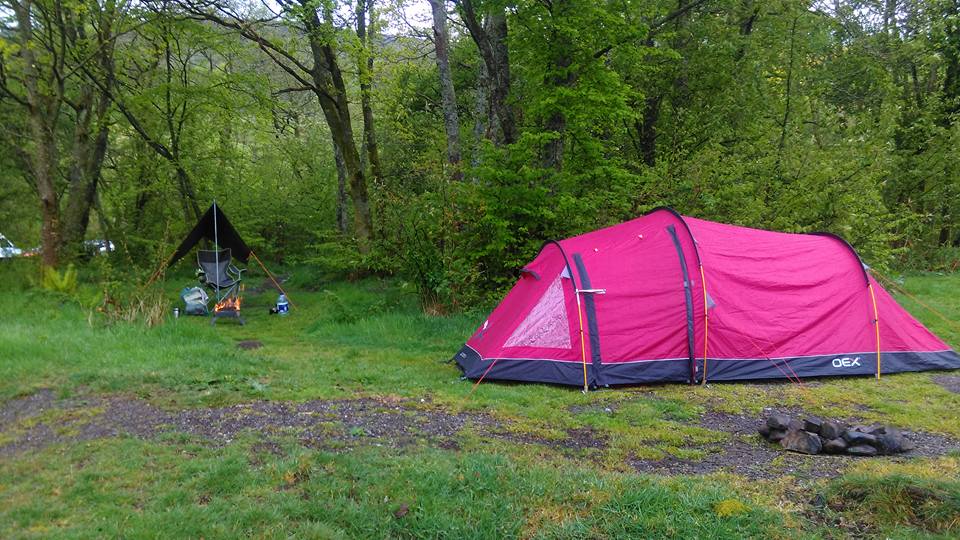
However, about 20 17-23 year olds rolled up and pitched their stuff about 30 meters to the left. Apart from one visit from a crying teenage steaming girl about no one liking her they kept to their own wee patch. A bit loud as you’d expect.
In the morning I said ‘Mind tidy your stuff up!’
‘Aye, nae bother mate’ they said as they jumped in their cars and disappeared.
After a few minutes of cleaning their stuff up in the car park I went over to see what they’d left!
My wee camp in the first three pictures and their mess in the last two! Pictures make it look better than it actually was as you can’t see all the used condoms, food, and drink lying everywhere!
Sigh 😢
Not a Ranger in sight all night!
End of Report
Additional comments by Ross MacBeath and Nick Kempe
Failure to Stop Antisocial Behavior in Management Zones.
This is by no means an isolated incidence (see here)
It appears from the last two images that this group of youths have camped before. It’s highly likely that much of the mess caused by abandoned tents and camping equipment (fly tipping) as well as environmental damage takes place in the National Park can be attributed to a few groups such as this. It is clear to park users that the Loch Lomond and Trossachs National Park Authority and its Rangers need to focus ALL their efforts on the groups who create most havoc and not waste time in their “engaging” and “education” of responsible campers. “Education” of people new to camping, who may unwittingly cause minor impacts, while unobjectionable in principle is hardly a priority until the major offenders have been stopped.
The early bird catches the worm!
When it became apparent the group were leaving without clearing up, park rangers and Police Scotland responded arriving on site around 10:30 ish on the Sunday to find of course those responsible for the mess already gone. Another camper had a photograph of their tent with vehicles in the background.
So what is going on, it would have been reasonable to expect a standard Ranger patrol to arrive at this site well before 10.30 am as a priority on a Sunday morning, so it seems the claims of intelligent patrolling are a sham when a twelve year old knows if he’s made a mess he should scarper before he’s found out, why can’t the Park Authority appreciate this?
Too much time engaging with responsible visitors not enough time patrolling
How can the LLTNPA with it’s large ranger force and new powers to report offences directly to the Procurator Fiscal, fail to stop anti-social behaviour across the Park?
It’s pretty simple:
- The byelaws will not deter anti-social groups unless they are likely to get caught. The Byelaws duplicate existing laws relating to these offences and only serve to devolve powers to rangers who can directly report to the procurator fiscal with a threat of higher penalties in some cases. If you can still turn up late evening, party, jump in a car early morning and escape authority (whether Rangers or Police) it seems nothing has changed..
- The rangers are spending far to much time micro managing visitors and collecting data for their ranger reports, no doubt in some misguided attempt to justify the introduction of byelaws when what they should be doing is targeting the problems. If the LLTNPA needs to employ rangers to work after 8.30pm, when problems are most likely to occur, or early morning to catch them so be it.
- Instead of wasted hours checking permits of responsible park users, the LLTNPA should task Rangers to identify the tell tale signs; groups drinking; messy pitches and excessive noise are all indicators of potential problems, identify those people (its easy, photograph the car and number plate – people without cars almost never cause problems) and make it clear to them, if there is any mess left the next day they will be reported to the Procurator Fiscal. This is what the police did on east Loch Lomond, it worked there and would be equally effective across all Management Zones.
- Instead of trying to ban and control responsible campers, the LLTNPA should be empowering them to help take action against anti-social visitors. The best way to change behaviour is to lead by example. A case in point is dog fouling where over the last ten years attitudes and behaviour of dog owners has completely changed, not due to enforcement of the law but to a change in social attitudes and it’s the attitudes of “responsible” dog walkers that have been key in this process. They are the people on the ground most likely to see and infulence what other dog walkers were doing. Its the same with campers. The LLTNPA however have treated all campers as potential criminal elements and in doing so alienated their greatest potential source of support.
Clearly if rangers had identified the group of 20 youths at some time during their stay this criminal offence of fly tipping, which did not in fact occur until the group left in the morning, could easily have been prevented.
The Park Authority confirmed their rangers did not patrol that evening (13th May) because they were involved in another incident, They would however have caught them in the morning had their patrolling schedule started early enough. It did not, and that is the reason this particular group and so many others are free to re-offend. It’s just not good enough.
If the perpetrators were caught after the police sped off down the road after them, the fact remains LLTNPA Rangers failed to identify the issue and any success is thanks to a number of responsible campers who in fact provided the initial report of the incident with details and photographic evidence of vehicles involved. The byelaws will never succeed without the support of those the park have chosen to penalise in every conceivable way
What the Park Authority Need to Do
- Abolish the camping permit system, free up Ranger time, and use patrols to identify potential problems and pre-empt
- Set up a 24 hour response service, with the police, to respond to problems (local people and responsible campers deserve nothing less). This could be easily paid for out of resources wasted managing permits
- Start working with recreational organisations to identify how responsible campers could be encouraged to report problems to the LLTNPA and how people like James, who cleared up some of the mess, could be supported. Bins for the rubbish would be a good start – its one thing to pick up someone else’s rubbish, another to take it away with you (as we are sure the LLTNPA appreciates as their ‘Rangers are not allowed to put rubbish into the backs of their vans for Health and Safety reasons).
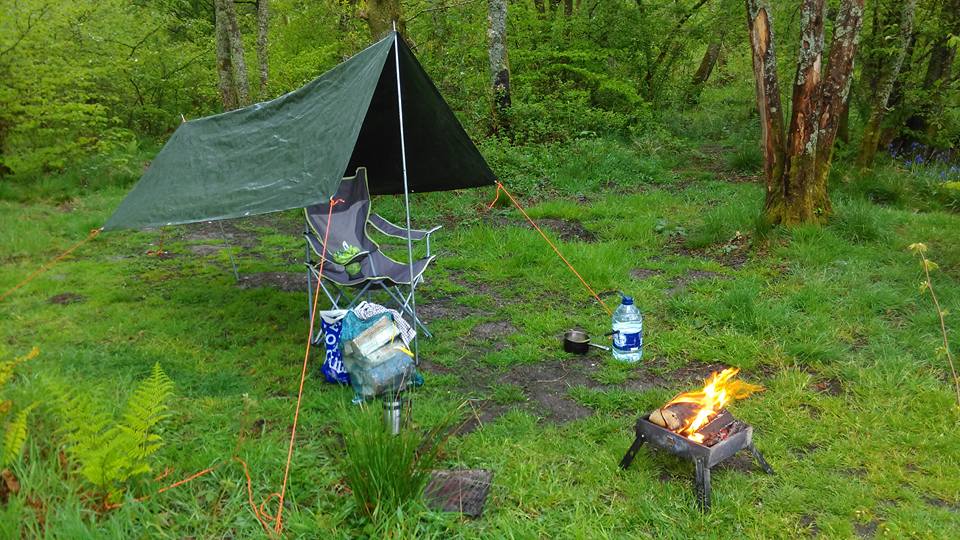
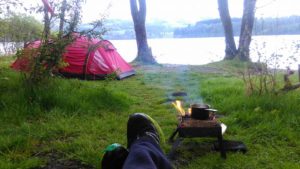
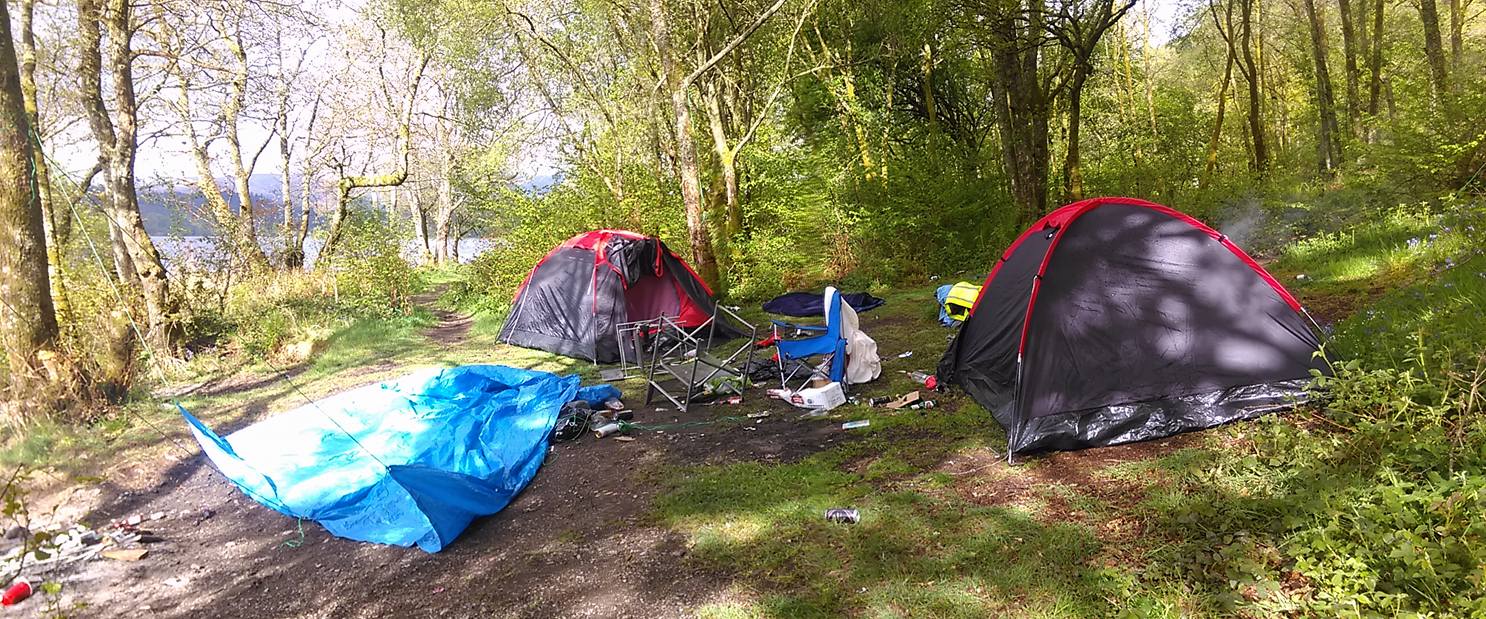
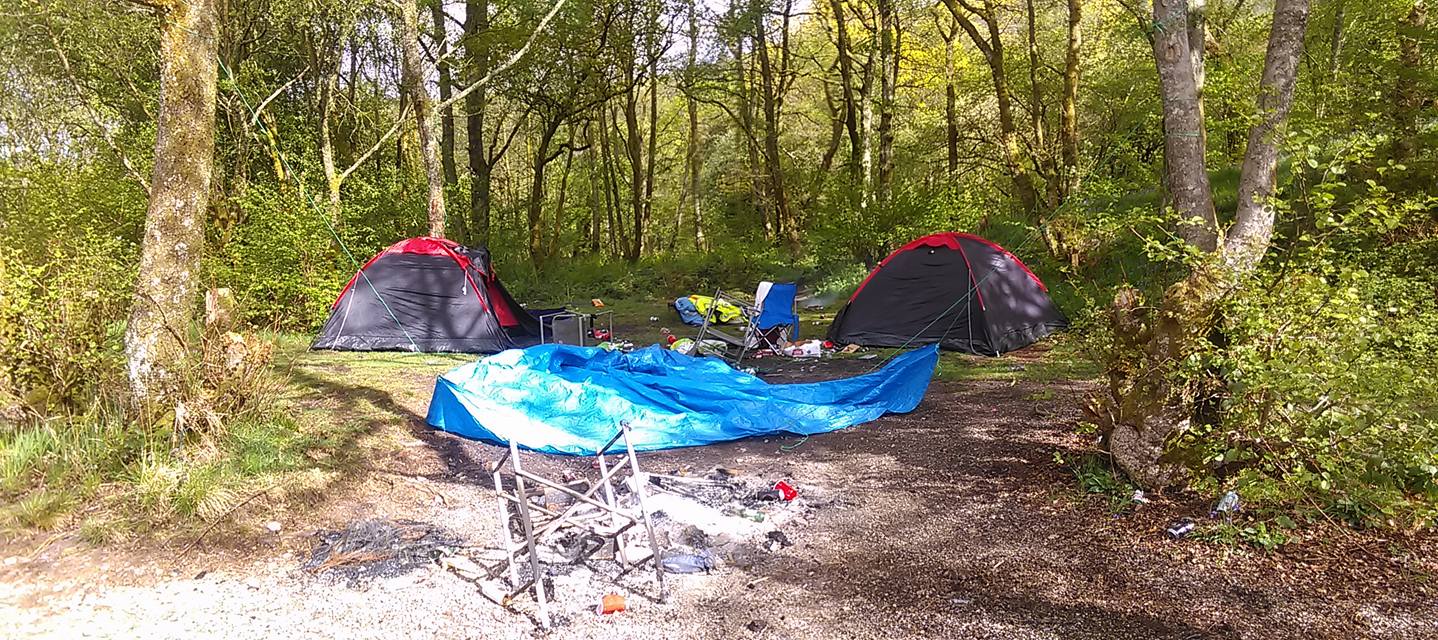

It’s as if those of us against the ban are flippin’ able to predict the future as this is EXACTLY one if the things we all predicted would happen.
Dont want to sayvwe told you so but we did
Said this before , Park Rangers ARE SCARED to get involved when there’s large groups of youngsters camping.
Don’t really blame them.
Oh dear. As usual, laws have been created which disadvantage the majority and don’t solve the problem. Warned that this would happen. Proper control by patrolling at sensible times even before this stupid by- law could have help solve the problem
Fair enough, not keen on the Byelaw which penalises legitimate and legal campers … however… there is a good argument to be made I think that the police will only be inclined to act (and empowered to chase up these perpetrators ) if there is a legally robust byelaw. For all we know these perpetrators will be caught up with, penalised, and this becomes a deterrent. Fingers crossed. My point is that this is more likely to happen if there is a stringent Byelaw
I recommend you read former Chief Police Inspector Kevin Findlater’s response to the camping byelaws, he started by supporting the east Loch Lomond byelaws and ended up opposing them and his response explains how byelaws are not need to tackle anti-social behaviour
If rangers are not allowed to put rubbish in the back of their vans for H&S reasons …. who does remove it ? , and if i was being honest it would appear that the rangers don’t wish to dirty their hands .Poor show you introduce pointless unenforceable bylaws , that do nothing but burden the local Police force , whilst the wardens in your employ (paid for through taxes) swan around attempting to implement a system that was doomed to failure from the start . I think its about time the Park authorities actually listened to the people who have been safeguarding the area for years for no payment , IE the hill walkers , hikers and countrymen / women
The police already have a robust course of action in the existing laws of the land to tackle both antisocial behaviour and damage to property . The problem was the National Park Rangers took notes and photographs instead of taking action, while now, as then, they may have an overwhelming need to justify the byelaws through Ranger reports and surveillance data, the real job is not getting done.
.
The raft of criminal offenses created by the LLTNPA Byelaws and their associated terms and conditions is making a mockery of Scots law, but what’s more damaging than any other single issue is that the Rangers themselves are undermining the rule of law. Decisions not to take criminal offenses forward for prosecution should be made in certain cases as exception to the rule of law. What we have in the National Park Authorities regime is enforcement of criminal law is the exception. What kind of message is this sending out to the population at large. It’s a very dangerous precedent and it will ultimately discredit the Criminal Justice System. If you are not going to enforce it, then it should not be a criminal matter it should be a civil matter.